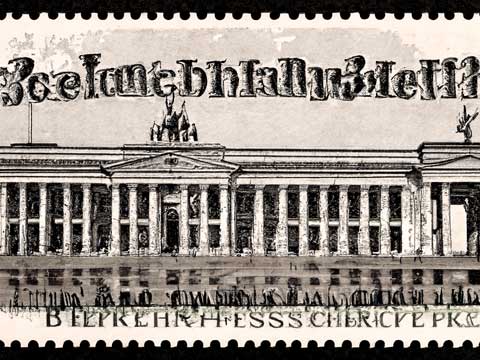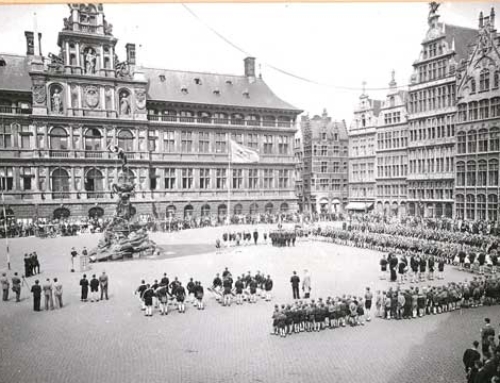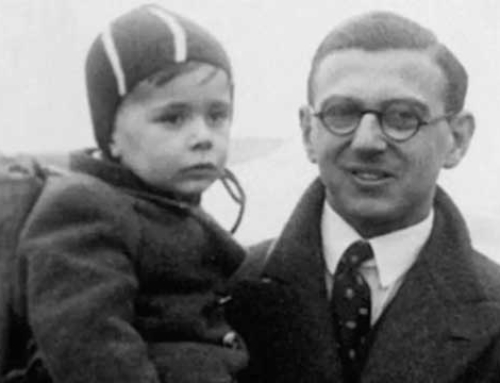In our previous article, we discussed the early days of Hitler and the Nazi party. Today, we delve into how they gained increasing power and the consequences this had for Germany and all of Europe. Let’s delve into the history of this “Ascension of the Nazis.”
So, how did Hitler actually come to power?
After the failure of the Beer Hall Putsch, one might have thought that Hitler and his cohorts would have given up. Quite the opposite. The Nazis were masters of political manoeuvring. Even though they never obtained the majority of votes(!), they skilfully exploited the German political crisis following the Great Depression.
In a time of economic uncertainty and national humiliation after World War I, Germany sought stability. The Nazis tapped into this discontent and promised change and a restoration of German pride. By forming tactical alliances, such as with the German National People’s Party, they gained a foothold in the political arena.
Hitler’s appointment as Chancellor in 1933 was not solely the result of his own political maneuvers but also of behind-the-scenes deals and manipulations by other political players, like former Chancellor Franz von Papen, who believed he could “tame” and control Hitler.
They believed that by placing Hitler in a high position but surrounded by “moderates,” they could keep him in check and limit his influence. What a miscalculation!
Once in power after the ascension of the nazis, Hitler swiftly consolidated his position, eliminating political opponents and embarking on a reign of terror. They had underestimated this man’s ambitions and abilities.
But what does a totalitarian state actually mean?
Upon coming to power, Hitler wasted no time. In a very short span, Germany transformed from a republic into a totalitarian state where the Nazis held undisputed power and ruthlessly suppressed any form of opposition or criticism.
One of the first steps, after the ascension of the nazis, was the Reichstag fire in 1933, for which the communists were falsely blamed. This provided Hitler with the opportunity to enact the Reichstag Fire Decree, suspending numerous civil liberties. As a result, communists and many other opponents were arrested and placed in concentration camps.
But it didn’t stop at repressing political opponents. Freedom of speech was severely curtailed. Newspapers, radio stations, and publishers were censored or taken over by the state. Many journalists critical of the Nazi regime were imprisoned or lost their jobs. Freedom of assembly was also restricted; unions were dissolved and replaced by the Nazi-controlled German Labor Front.
The Night of the Long Knives in 1934 was another shocking example of Hitler’s method of consolidating power. During this night, many leaders of the SA, once allies of Hitler, were arrested and executed to gain the support of the German army and eliminate any opposition within their own ranks.
For the ordinary citizen, life became increasingly unnerving. They had to constantly watch their words. A wrong word, a joke about the government, or even listening to foreign radio could lead to arrest, imprisonment, or worse.
In summary, what began as a promise of stability and a restoration of national pride quickly turned into a regime of terror that systematically deprived people of their fundamental freedoms and rights.
The First Steps Beyond Germany
But Hitler wasn’t just looking inward. While he consolidated his power at home, he also cast his gaze beyond Germany’s borders, with the goal of expanding the country’s territory. The concept of “Lebensraum” played a central role in this ideology. According to this belief, Germans needed more living space, primarily in the east.
Despite the provisions of the Treaty of Versailles, which imposed heavy restrictions on Germany’s military build-up, Hitler secretly began rearming the German armed forces. Tanks, aircraft, warships: Germany was amassing an impressive arsenal. This was a blatant violation of the treaty, but the international community’s reactions were surprisingly muted.
After the reoccupation of the Rhineland, a region that Germany had demilitarized under the Treaty of Versailles, came the “Anschluss” with Austria. Although Austria’s annexation largely occurred peacefully and was greeted with enthusiasm by many Austrians, it was a clear sign of Hitler’s expansionist ambitions.
However, the real test came when Hitler set his sights on the Sudetenland, a region in Czechoslovakia with a significant German population. Despite clear signals of Hitler’s intentions, France and the UK chose to capitulate at the Munich Conference in 1938. They allowed Germany to annex the Sudetenland in exchange for Hitler’s promise that this would be his final territorial claim.
It was a policy of “appeasement” that hoped to appease the Nazi leader and prevent war. However, what a monumental error! In less than a year, Germany had occupied all of Czechoslovakia and was eyeing other territories in Europe.
Why is All of This Important?
This story is a striking example of the fragility of the political and social order.
In a remarkably short time, Germany transitioned from a democratic republic, with all its flaws and challenges, to a totalitarian state that not only oppressed its own citizens but also threatened the peace and stability of all of Europe.
This transformation following the ascension of the Nazis is not a unique example in history. After World War II, various regimes, both in Europe and elsewhere, followed similar paths. Consider the Stalinist regime in the Soviet Union, which oppressed millions of people, or Mao’s China, where the Cultural Revolution caused countless suffering and had a profound impact on Chinese society.
More recently, countries like North Korea, Zimbabwe, and Venezuela have shown how leaders can seize power, undermine democratic institutions, and terrorize entire populations.
And we haven’t even touched on contemporary Russia under Vladimir Putin, which doesn’t hesitate to militarily invade a neighbouring country and commit war crimes.
The Crucial Role of Vigilance in Times of Crisis
What we can learn from all of this is that vigilance is crucial. In times of crisis or uncertainty, it can be tempting to seek simplistic solutions or follow strong leaders who promise to restore order. But as history has shown us, blindly following such leaders can often lead to oppression, the loss of freedoms, and even war.
That’s why it’s so important to remain critical. To have the courage to ask questions, even if they are uncomfortable. To speak out against injustice, no matter the cost. And above all, to always uphold our fundamental values of freedom, equality, and fraternity, because these values are the cornerstone of a free and just society.
In our next article, we will delve further into the period of Nazi Germany during World War II. Until then!






